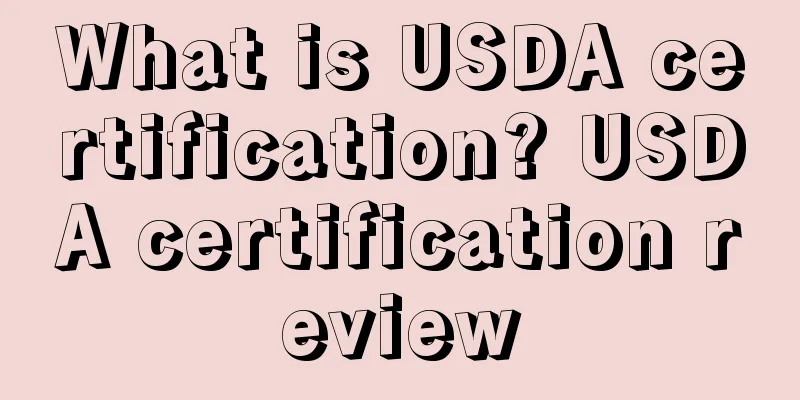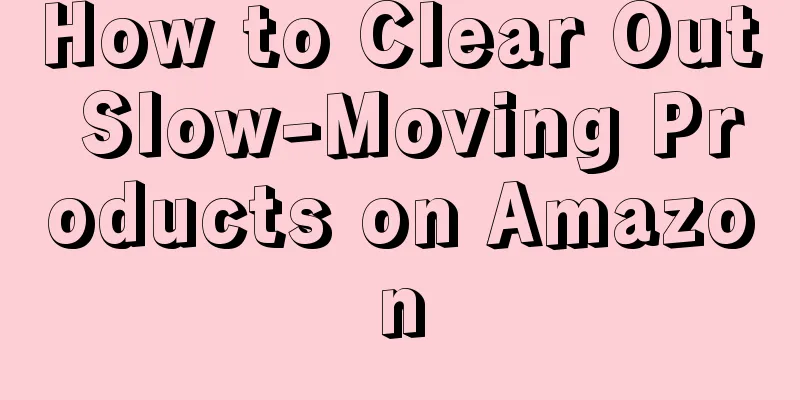What is USDA certification? USDA certification review

|
USDA (United States Department Of Agriculture) organic certification is the most authoritative organic certification in the United States, and the certification body is the United States Department of Agriculture. About USDA The function of the United States Department of Agriculture can be summarized in one sentence, that is, "from field to table". USDA organic certification is the highest level of organic certification in the United States. It strictly controls from raw materials to production to ensure that its products do not contain any ingredients that are harmful to the human body and are 100% beneficial. As an organic food certified by the United States Department of Agriculture, the USDA logo must be 100% organic ingredients to be used. Production standards for organic food in the United States 1. The use of genetically modified substances, radiation and sewage sludge is prohibited in organic production; 2. The use of antibiotics and growth hormones is prohibited in organic livestock farming; 3. 100% organic feed must be used in organic livestock breeding; 4. Production and processing materials specified in the "National List of Artificial Substances Allowed for Use and Natural Substances Prohibited for Use" must be used; 5. Any farm must not have used prohibited substances for three years before it can be certified as an organic production farm; 6. Any livestock to be slaughtered must be raised in an organic manner from two months before birth until its entire life in order to be certified as organic livestock; 7. Organic livestock must be raised outdoors, and ruminants must be raised on pasture. USDA specific standards 1. The ingredients used do not contain any chemical synthetic substances, such as fertilizers, pesticides, antibiotics, food additives and genetically modified animals and plants. 2. The soil where the ingredients are grown must not have been used with chemical synthetic substances for at least three years. 3. Check production and sales records regularly. 4. Maintain strict physical separation of organic certified products. 5. Inspect the production facilities and buildings of organic products. 6. Products made entirely of organic ingredients can be labeled "100% organic" or use the USDA logo. 7. Products that use more than 70% organic ingredients can be called "Made with Organic Ingredients+", but cannot use the USDA logo. The U.S. Department of Agriculture has designated 55 agencies in the United States to conduct USDA audits on product ingredients. For example, OTCO (Oregon Tilth Certified Organic) is an organic certification agency in Oregon. Logo Instructions The following two signs can usually be seen on product packaging: 1. USDA logo: must be 100% organic ingredients to be used. 2. Made with Certified Organic ingredients: This means that the entire bottle of water contains water and salt, more than 70% of which are organic ingredients. It is also a sub-symbol of organic certification. Organic Products Management Agency The USDA is responsible for managing the legislation, certification, penalties and international cooperation of organic products in the United States. This is specifically done by the NOP under its Agriculturaltural Marketing Service (AMS), which has three divisions: the Standards Division, the Accreditation and International Cooperation Division, and the Supervision Division. They are responsible for agency approval (accreditation), complaint handling, case investigation, implementation of penalties, market monitoring, regulations, standards, revision of the National List, interpretation of regulations and standards, etc. The National Organic Standard Board (NOSB) under the USDA is responsible for making recommendations on the formulation and revision of organic standards. NOSB consists of 15 members: 4 farmer representatives, 3 environmental experts, 3 consumer representatives, 2 processor representatives, 1 retailer representative, 1 scientist (ecology, chemistry, toxicology) representative and 1 USDA accredited agency representative. NOSB has 6 sub-councils: Planting Crop Sub-Council, Livestock Sub-Council, Organic Operation Sub-Council, Input Material Management Sub-Council, Certification and Accreditation and Conformity Assessment Sub-Council, and Policy Recommendation Sub-Council. International Cooperation The United States has signed two-way mutual recognition agreements with Canada, the European Union, and Japan, a recognition agreement for U.S. exported organic products with Taiwan, China, and a recognition agreement for organic products imported into the United States with New Zealand, India, and Israel. NOP has recognized dozens of certification bodies from 26 countries and regions, including Australia, Germany, Argentina, New Zealand, the United States, Australia, Peru, Switzerland, Italy, Bolivia, India, Spain, Japan, Belgium, Mexico, the Netherlands, France, Armenia, Costa Rica, Turkey, Brazil, Israel, Guatemala, Canada, Austria, and Taiwan, China. These certification bodies can certify organic products outside their countries (regions). Currently, certification bodies from 10 countries and regions, including Australia, Germany, Japan, and the United States, have carried out organic product certification in China for export to the United States. |
<<: What is the customs supervision code 9610? Customs supervision code 9610 review
>>: What is the customs supervision code 9710? Customs supervision code 9710 review
Recommend
What is Beiyoubao? Beiyoubao Review
PPbyB is a logistics solution for PayPal's exc...
What is a design patent? Design patent evaluation
In the United States, a design patent is a form of...
What is PayNow? PayNow Review
PayNow is an electronic transfer service and a mem...
How are your sales during the two days of Christmas? I was making $10,000 a day a week ago, but today it’s only $1,500…
Cross-border intern My C position Wow, how are eve...
What is Duty Drawback? Duty Drawback Review
Duty refund is an administrative act in which the ...
What is Sezzle? Sezzle Review
Sezzle is a payment solution that breaks purchases...
The value of online returns in the United States exceeded $200 billion in 2021! Nearly 20% were auto parts!
According to data from the National Retail Federat...
What is ReplyManager? ReplyManager Review
ReplyManager is a web-based email management tool ...
The reason why listings became a dog is that sensitive words were added to other sites after being modified.
Zhiyou's listing is selling well in the US. A...
Live shopping becomes a hot trend! US live e-commerce company NTWRK receives $50 million in financing
It is learned that the US live shopping applicatio...
What is Macy's? Macy's Review
Macy's, a subsidiary of United Department Stor...
What is Keyword Tool? Keyword Tool Review
Keyword Tool is a keyword search tool that uses Go...
What is AMS? AMS Review
AMS ( Amazon Marketing Services) is a package of s...
Amazon advertising invalid traffic negation and elimination method + Amazon product traffic correlation factor mind map + Amazon influencer marketing process + some factors affecting conversion
Amazon advertising invalid traffic negation metho...
Black Friday News! What's happening on Black Friday this year?
Black Friday officially begins at 4pm this aftern...









